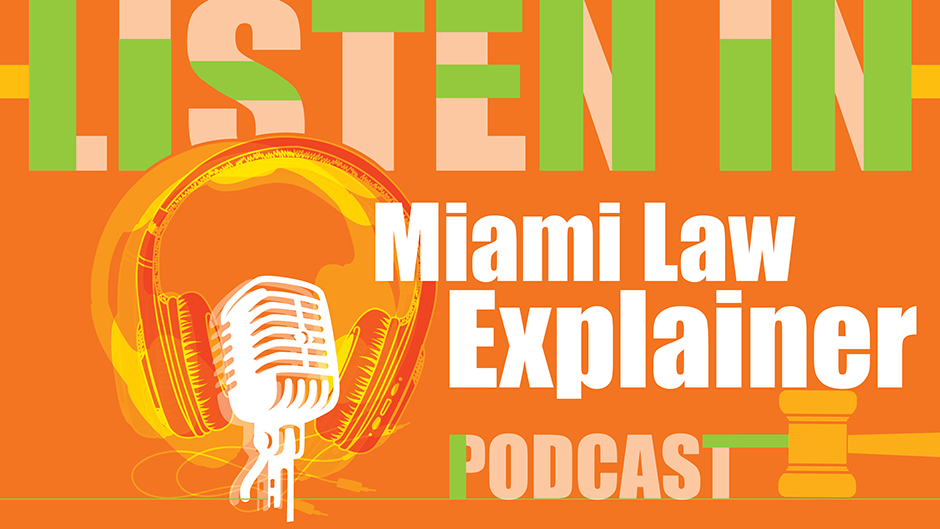With 125 bingeable episodes, the Miami Law Explainer podcast readies for a new season of legal experts opining and analyzing everything from headline news to scholarship and advocacy.
Season Nine brought some formatting changes with Charlton Copeland, associate dean for intellectual life, taking over the mic to discuss academic research with Miami Law authors in a series-within-a-series called Forthcoming.
40,000 worldwide plays
Top downloads from season nine included "Two Trials," with Miami Law's Innocence Clinic Director Craig Trocino deconstructing the Parkland massacre and the Alex Jones/Infowars defamation case brought by two Sandy Hook massacre parents.
In "A Feminist Reckoning," Copeland discussed with Donna Coker her article addressing domestic violence advocacy's confrontation with its contribution to the rise of the carceral state and its impacts on race and class marginalized communities. Her research attempts to understand and direct a way forward for gender-based violence at a moment when it has become imperative to look beyond police responses to intimate partner violence.
In "Facing Eviction in an Impossible Market," Miami Law's Tenants' Rights Clinic Director Jeffrey Hearne unpacks the process and the need for more attorneys to represent tenants in eviction proceedings for better outcomes.
"A Post-Floyd Nation" explores America's split between acceptance of racial history and whitewashing the past. Professor Donald Jones susses out the past, present, and future of racial equity.
"So often the public sees scholars opining about matters of immediate impact, my desire for this series was to open to door a bit wider to the role that long term research questions and agendas impacts our faculty's contribution to matters of public concern, " said Copeland.
"I want a wider public to see the Miami Law faculty's engagement with the production of scholarship as inseparable from our contributions to those matters of more immediate concern and interest," he said. "Talking to faculty across issues of empathy and criminal sentencing, the rights of children in foster care, the judicial role in addressing issues of race and state violence, and the different manifestations and sites of contemporary labor law and politics are just a few of the ways that Miami Law's faculty has employed long-term research to teach us more about these issues that are on the front pages of media."
Listen to Miami Law Explainer podcast

